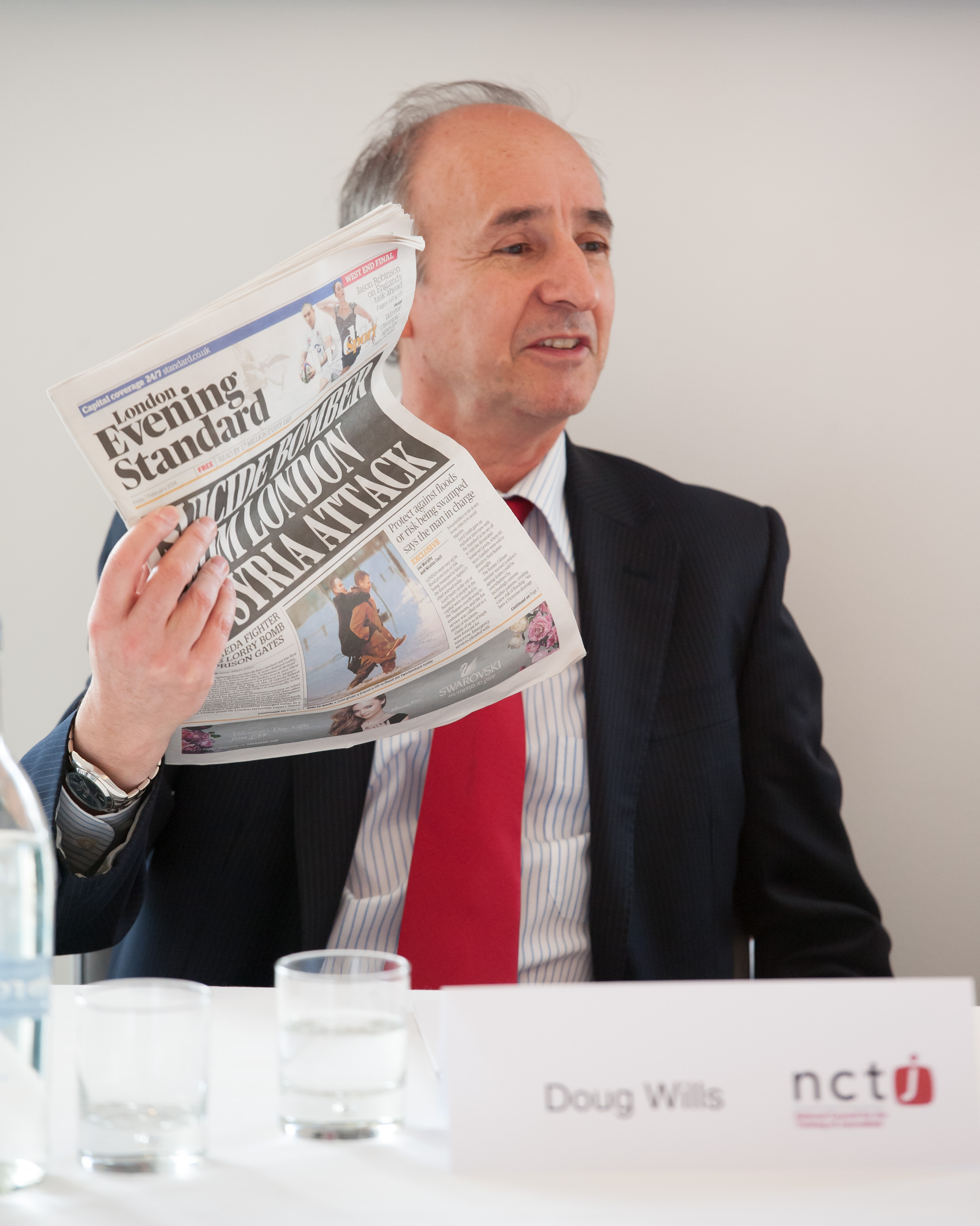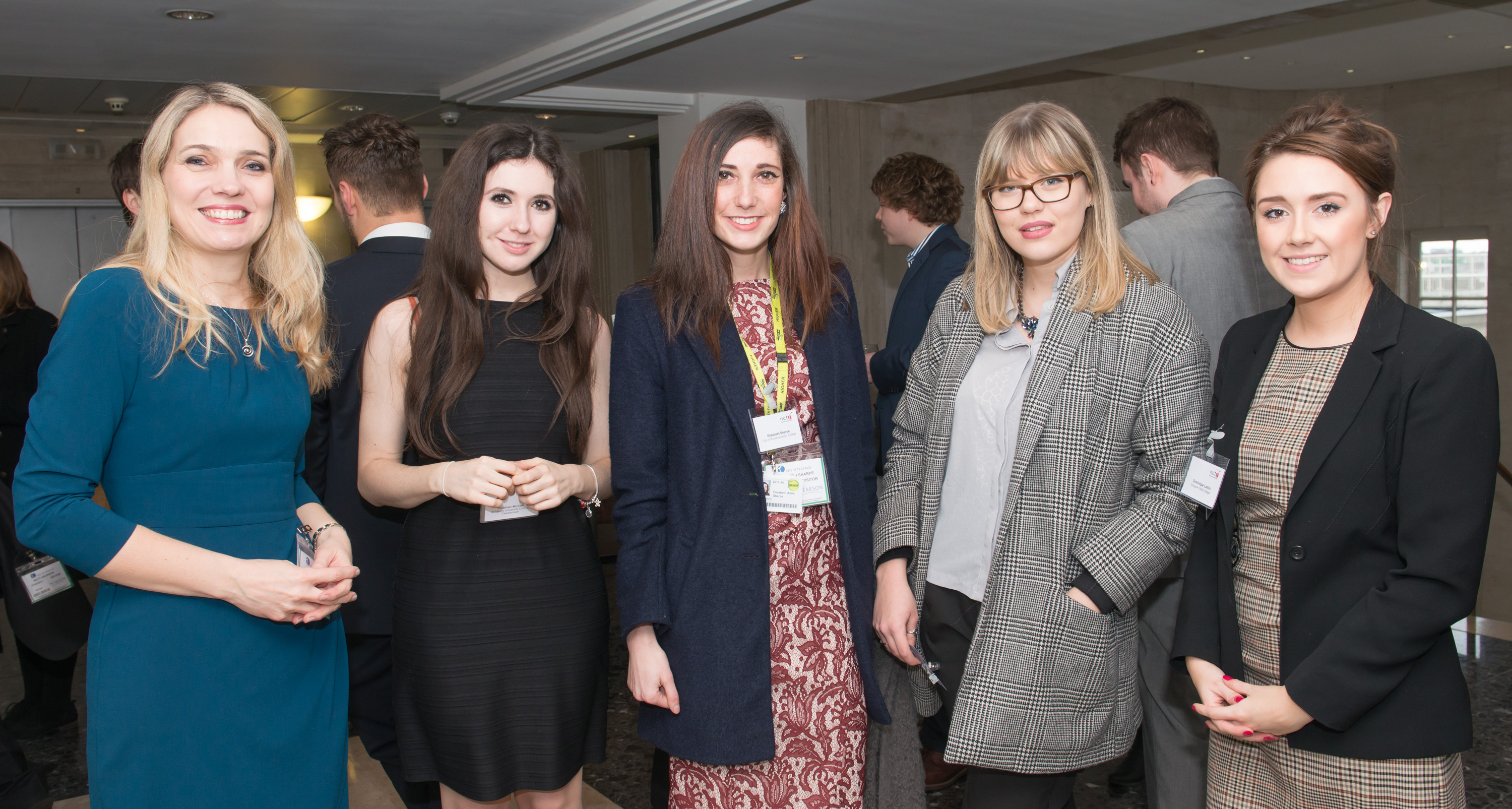Journalism students quiz industry professionals and NCTJ at annual Student Council
Students were given the chance to quiz a panel of editors and the industry’s training body at this year’s Student Council at Pearson in London.
Students were given the chance to quiz a panel of editors and the industry’s training body at this year’s Student Council at Pearson in London.
A panel of industry professionals was chaired by Chris Elliott, readers’ editor at The Guardian and chairman of the NCTJ accreditation board, and included: Laura Adams, editorial director, Archant London; Mary Hockaday, head of multimedia newsroom, BBC; and Doug Wills, managing editor, London Evening Standard, i, The Independent and The Independent on Sunday.
They were asked a range of questions from 43 student representatives from NCTJ-accredited courses across the UK, including what they look for when recruiting staff, tips on how to pitch as a freelance and how the panellists view the future of journalism.
 All the panellists stressed the need for students to demonstrate their credentials as a reporter by building up work experience. Doug Wills advised students to do their research and seek out the right people to contact about placements and job opportunities. He warned students: “Never start a letter ‘Dear Sir’, or worse, ‘Dear Sir or Madam’.”
All the panellists stressed the need for students to demonstrate their credentials as a reporter by building up work experience. Doug Wills advised students to do their research and seek out the right people to contact about placements and job opportunities. He warned students: “Never start a letter ‘Dear Sir’, or worse, ‘Dear Sir or Madam’.”
Laura Adams advised students to take the initiative and not wait for a position to be created. She added she has advised all her editors to look for candidates with good shorthand and wanted to see those candidates who would seize all the opportunities that came their way.
Although there are now many different news platforms, Mary Hockaday said students shouldn’t be daunted as the same basic journalism skills were required for all. She added: “Something that matters no matter what platform you’re on, is spelling.”
Chris Elliott advised those hoping to pitch stories to editors to “learn the rhythms of the office”. He advised students to show a bit of “savvy” and avoid contacting editors during the morning news conference or just before deadline.
Although there was some lively debate about the fate of print journalism, all the panelists agreed there would always be a need for good journalism, no matter what the platform. Doug said: “The way you tell stories in five years’ time may change. The story will be the same but the way it’s told will be different.”
Preceding the editors’ panel, the NCTJ management team, including chief executive Joanne Butcher, took  questions from the student representatives on all aspects of accredited courses, including: the current resources available for shorthand; the scope of the law and public affairs study materials for students in Northern Ireland; and communication between the NCTJ and the Student Council. The representatives also took the opportunity to suggest additional specialist options for consideration and changes to how shorthand results are published.
questions from the student representatives on all aspects of accredited courses, including: the current resources available for shorthand; the scope of the law and public affairs study materials for students in Northern Ireland; and communication between the NCTJ and the Student Council. The representatives also took the opportunity to suggest additional specialist options for consideration and changes to how shorthand results are published.
The afternoon session began with presentations from the students following discussions with their peers. The conclusions will be used for the NCTJ to inform its plans for the future and nominated representatives will present their views to the board of directors in June.
To view more pictures, see here. All pictures courtesy of Arnaud Stephenson.

